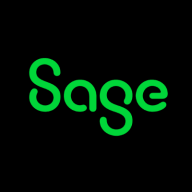

Sage CRM and Dynamics 365 Sales compete in the CRM and ERP categories. Dynamics 365 Sales has the upper hand due to superior integration options and mobile access.
Features: Sage CRM excels in finance and distribution features and opportunity management, offering flexible customization and reporting. Dynamics 365 Sales provides robust integration, comprehensive control, and seamless Microsoft integration with exceptional workflow flexibility and effective lead management.
Room for Improvement: Sage CRM could improve email and social platform integration, dynamic reporting, and interface design. It also needs enhancements in travel management modules and analytics. Dynamics 365 Sales should consider better pricing models, reporting flexibility, and more integration options beyond Microsoft 365, as well as price reductions and improved Teams and AI connectivity.
Ease of Deployment and Customer Service: Sage CRM offers flexibility across on-premises and cloud deployments, with strong self-help resources and support. Dynamics 365 Sales is available in public cloud environments with rapid support, benefiting from seamless compliance adaptations and swift response times.
Pricing and ROI: Sage CRM is moderately priced, providing good ROI through yearly licensing despite perceived expense by some users. Dynamics 365 Sales, with medium-range pricing, operates on a monthly license, presenting higher costs in some markets but delivering significant ROI similar to competitors.
Every solution claims to save time, money, and provide productivity savings.
Our company reached the return on investment in just one and a half years after implementation, with improvements in productivity, efficiency, and overall outcomes.
They prioritize serious issues and try to resolve them as quickly as possible.
The overall technical support of Microsoft deserves a rating of 10 out of 10.
We have a global deployment across our organization in approximately 180 countries through Microsoft Azure cloud.
Dynamics 365 Sales is more scalable compared to Salesforce.
Because of the API limits, the throughput is not good.
I usually do not face any bugs and would give it a high rating.
Its stability rate is 99.9998%, which is crucial as any instability could disrupt access to vital information.
It is definitely stable and scalable.
They advise about using Power Automate, but it is not suitable for large scale operations.
If Microsoft could provide direct integration, it would better support customers, especially in the Indian market.
The biggest challenge that people had was the simplicity that something like Salesforce offers, which Dynamics 365 Sales didn't really have.
The list price is $150 per user per month, though my company pays $105 per user per month for 20 users.
It is affordable, and what I've seen is a lot of SME customers, small and medium enterprises, tend to go with Dynamics 365 Sales over anything else, which indicates that it's more affordable than some other solutions in the market.
In SAP, filling 20 fields required visiting 10 different pages sequentially, whereas now everything can be done on a single page.
This CRM system is more scalable than Salesforce, and its stability rate is 99.9998%.
The solution is collaborative with many integrations, and it is scalable.
| Product | Market Share (%) |
|---|---|
| Dynamics 365 Sales | 0.5% |
| Sage CRM | 0.7% |
| Other | 98.8% |
| Company Size | Count |
|---|---|
| Small Business | 9 |
| Midsize Enterprise | 2 |
| Large Enterprise | 4 |
| Company Size | Count |
|---|---|
| Small Business | 3 |
| Midsize Enterprise | 3 |
| Large Enterprise | 2 |
Dynamics 365 Sales empowers teams with capabilities in lead management, scheduling, and workflow organization. Its Office 365 integration and comprehensive ERP features enhance productivity and control.
Dynamics 365 Sales offers powerful tools for managing leads and customer interactions. Its integration with third-party apps and REST APIs simplifies workflows, providing comprehensive visibility and reliable performance. Teams benefit from its robust documentation and Power Platform compatibility, enhancing productivity with flexible pricing and a user-friendly interface. Despite some complexities, improvements in Outlook integration, AI features, and affordability are areas for enhancement.
What are the key features of Dynamics 365 Sales?Companies in industries like retail and sales management implement Dynamics 365 Sales to track opportunities and manage customer interactions. It helps in generating customized offers, managing orders, and supports sales reporting and CRM capabilities. Teams utilize it for sales management, lead follow-ups, and aligning targets with objectives, making it essential for daily operations.
We monitor all CRM reviews to prevent fraudulent reviews and keep review quality high. We do not post reviews by company employees or direct competitors. We validate each review for authenticity via cross-reference with LinkedIn, and personal follow-up with the reviewer when necessary.